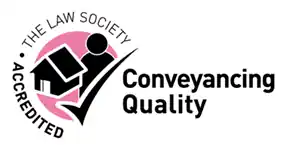
Coping with Psychological Problems After a Personal Injury
How to Claim Compensation for Psychological Injuries following an Accident
If you have been involved in an accident for which someone else was to blame, and in which you were physically hurt, then you may well be contemplating making a claim for compensation. However, did you know that you could also claim for any psychological injuries you may have suffered and that if the accident was witnessed by your loved ones they could make a claim too?
What is a Psychological Injury?
A psychological injury occurs when you begin to experience mental health problems in the weeks or months following an accident or where you notice that an existing mental health problem has begun to get significantly worse.
The injury may be triggered by the accident itself or by the stress of having to come to terms with its consequences, for example where you have been left disabled.
Symptoms of a Psychological Injury
A psychological injury can present itself in a number of ways. For example, you may experience difficulty in sleeping and frequent nightmares where you find yourself reliving the moments leading up to the accident or its immediate aftermath. You may also begin to suffer from panic attacks and a general sense of apprehension or find yourself feeling increasingly low.
Commonly Diagnosed Problems
Many people who experience psychological problems following an accident go on to be diagnosed with one of the following conditions:
- post-traumatic stress disorder – which can cause you to feel nervous, worried or emotionally detached and to suffer from flashbacks;
- anxiety – which can cause you to worry excessively about everyday things and to develop phobias;
- depression – which can cause persistent feelings of guilt or sadness as well as disturbed sleep, increased irritability and a lack of motivation;
- complex regional pain syndrome – which can cause an unexplained burning, stabbing, stinging, tingling or numb sensation in one or more of your limbs; or
- adjustment disorder – which can leave you feeling unable to cope with life or to adjust to a new way of living where a physical injury has had life-changing consequences.
What do I need to prove to bring a Claim?
If you were involved in the accident, you will need to establish that it was caused by someone else’s negligence and that the injuries you have suffered are directly attributable to this.
Where you were a witness to the accident, you will need to show that:
- you have a close tie of love and affection with the person who has been injured (which usually means you will need to be their parent, child, spouse or partner);
- you were at the scene of the accident when it occurred or arrived shortly afterwards and therefore witnessed the immediate aftermath; and
- negligence on the part of the person at fault has been established.
What is Negligence?
Negligence is a legal term used to describe behaviour that falls below expected standards and which results in someone being harmed. It occurs where:
- the person responsible for the accident was under a legal obligation not to do anything that might foreseeably put you (or your loved one) at risk of harm, for example in their capacity as an employer or as a fellow road user;
- they breached this duty by acting carelessly or recklessly, for example by failing to provide the personal protective equipment needed to ensure a safe working environment or by driving without due care and attention; and
- this breach of duty was directly responsible for the accident in which the injury or injuries occurred.
What can I Claim for?
Depending on the injuries suffered and the effect they have had, you will usually be able to claim for:
- your pain and suffering;
- loss of earnings where you have had to take time off, or give up, work;
- the cost of any treatment or rehabilitation services not available on the NHS or which it is in your interests to receive privately, including cognitive behavioural therapy; and
- any expenses you have incurred, such as travel costs to visit a psychiatrist.
How much Compensation will I receive?
The amount of compensation you receive will depend on the severity of the psychological problems you are experiencing, whether you had any mental health issues before the accident, the impact the problems are having on your life, whether you are likely to recover, whether any ongoing treatment is required and whether you are likely to have to give up work or move into a less stressful, lower paid job.
As a general guide, compensation amounts can vary from £1,000 for very minor psychological injuries to £100,000 in cases of severe psychological trauma.
What should I do if I think I may have a Claim?
To find out if you could make a psychological injuries compensation claim please call us now on 0800 1956412 for a free, no obligation chat with one of our experienced personal injury lawyers. Alternatively please email us as enquiries@steplegal.co.uk.
It will cost you nothing to find out if a claim may be possible and, if it is, we can usually advise you under a no win, no fee agreement which means that there will be no financial risk to you even if your claim is unsuccessful.
We can help with claims arising out of a road traffic accident, an accident at work or an accident in a public place. A psychological injuries claim may also be possible where you are the victim of a violent crime, via an application for criminal injuries compensation, or where you were subject to sexual abuse as a child.
There is no need for physical injuries to have been sustained as well – a claim can be made for psychological injuries on their own.
In most cases, a claim must be commenced within three years of the injury occurring so do not delay – contact our solicitors in Crewe today to see if a claim can be made.
















